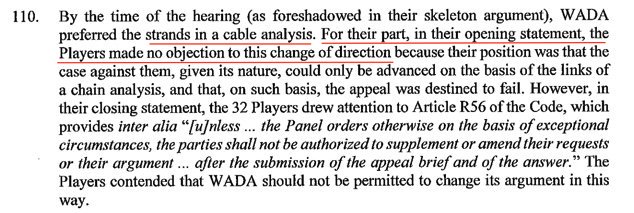Thrawn
Premium Platinum
Just imagine if the AFL Tribunal's decision was left as it was, it would have had massive ramifications for world sport. David Howman, chairman of WADA, said as much in his 3AW interview.
Faced with the CAS decision, the AFL Tribunal has been an international embarrassment in anti-doping. Did the AFL really "stack up" the tribunal in a way so that ASADA would have found it extremely hard to get a guilty finding, or was the issue simply above the heads of the panel members? Were they simply just incompetent enough to have the burden of proof so high, that even Armstrong would have been cleared? Or was it simply just a case of ASADA shooting itself in the foot by presenting the case in the wrong way, the defence being good enough to pick away at it?
The players certainly missed David Grace as their counsel. But would it have really made a difference against Richard Young?
Faced with the CAS decision, the AFL Tribunal has been an international embarrassment in anti-doping. Did the AFL really "stack up" the tribunal in a way so that ASADA would have found it extremely hard to get a guilty finding, or was the issue simply above the heads of the panel members? Were they simply just incompetent enough to have the burden of proof so high, that even Armstrong would have been cleared? Or was it simply just a case of ASADA shooting itself in the foot by presenting the case in the wrong way, the defence being good enough to pick away at it?
The players certainly missed David Grace as their counsel. But would it have really made a difference against Richard Young?
Last edited:








